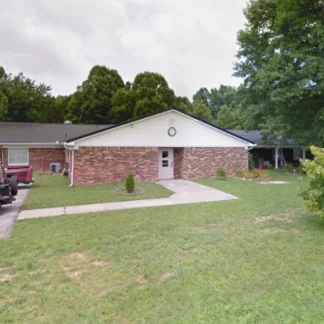Cumberland River Behavioral Health - American Greeting Card Road
Cumberland River Behavioral Health - American Greeting Card Road is an outpatien...
Cumberland River Behavioral Health - Crossroads is an inpatient facility for men that are struggling with a Substance Addiction. Cumberland River Behavioral Health - Crossroads is located in Corbin, Kentucky
Cumberland River Behavioral Health – Crossroads is dedicated to ensuring all members of the community an opportunity to achieve a lasting recovery that allows them to make a positive change in their lives and live in a healthier way. They offer a comprehensive and confidential environment for treatment
Cumberland River Behavioral Health – Crossroads offers a non-medical treatment for men. The program has a $400 admission fee. They accept referrals from statewide. Out of state referrals are expected to pay the full fee. All the Alcoholics Anonymus meetings are in-house.
Contact us for more information: (606) 526-9552

Connect with Cumberland River Behavioral Health - Crossroads by calling their admissions team directly.
(606) 526-9552 Website Get DirectionsThe Joint Commission, formerly known as JCAHO, is a nonprofit organization that accredits rehab organizations and programs. Founded in 1951, the Joint Commision's mission is to improve the quality of patient care and demonstrating the quality of patient care.
Joint Commission Accreditation: Yes Accreditation Number: 458
The Substance Abuse and Mental Health Services Administration (SAMHSA) is a branch of the U.S. Department of Health and Human Services. Established in 1992 by congress, SAMHSA's mission is to reduce the impact of substance abuse and mental illness on American's communities.
SAMHSA Listed: Yes
State Licenses are permits issued by government agencies that allow rehab organizations to conduct business legally within a certain geographical area. Typically, the kind of program a rehab facility offers, along with its physical location, determines which licenses are required to operate legally.
State License: Kentucky
Research clearly demonstrates that recovery is far more successful and sustainable when loved ones like family members participate in rehab and substance abuse treatment. Genetic factors may be at play when it comes to drug and alcohol addiction, as well as mental health issues. Family dynamics often play a critical role in addiction triggers, and if properly educated, family members can be a strong source of support when it comes to rehabilitation.
Group therapy is any therapeutic work that happens in a group (not one-on-one). There are a number of different group therapy modalities, including support groups, experiential therapy, psycho-education, and more. Group therapy involves treatment as well as processing interaction between group members.
In individual therapy, a patient meets one-on-one with a trained psychologist or counselor. Therapy is a pivotal part of effective substance abuse treatment, as it often covers root causes of addiction, including challenges faced by the patient in their social, family, and work/school life.
Group therapy is any therapeutic work that happens in a group (not one-on-one). There are a number of different group therapy modalities, including support groups, experiential therapy, psycho-education, and more. Group therapy involves treatment as well as processing interaction between group members.
In individual therapy, a patient meets one-on-one with a trained psychologist or counselor. Therapy is a pivotal part of effective substance abuse treatment, as it often covers root causes of addiction, including challenges faced by the patient in their social, family, and work/school life.
In individual therapy, a patient meets one-on-one with a trained psychologist or counselor. Therapy is a pivotal part of effective substance abuse treatment, as it often covers root causes of addiction, including challenges faced by the patient in their social, family, and work/school life.
Cumberland River Behavioral Health - American Greeting Card Road is an outpatien...
Jackson Behavioral Health Professionals is a private rehab located in Corbin, KY...
Cumberland River Behavioral Health–Capers is an outpatient mental and behavioral...
Cumberland River Behavioral Health is an accredited dual-diagnosis rehab facilit...